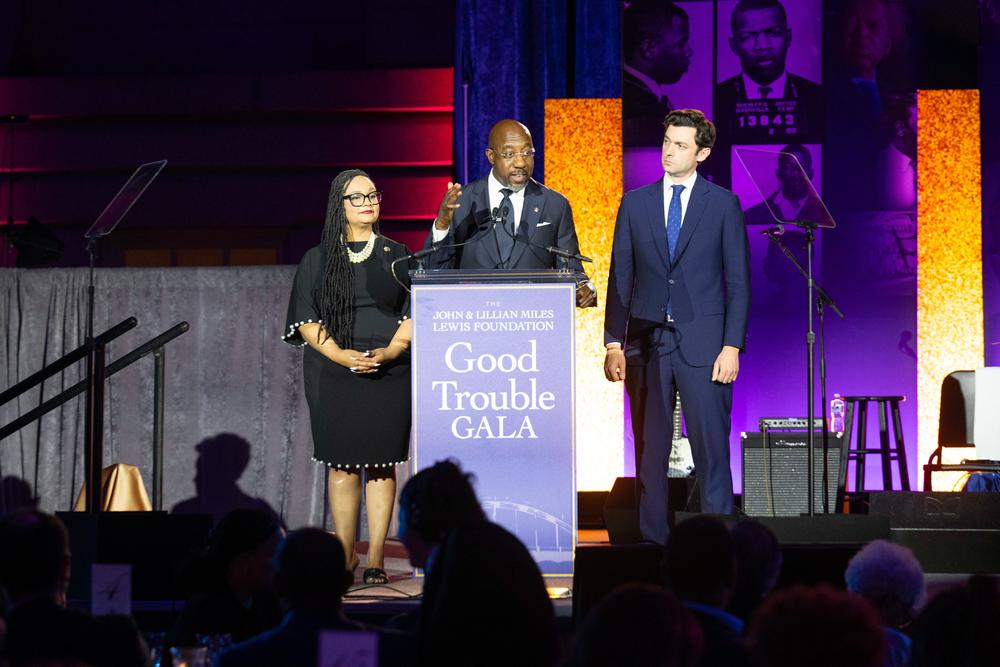
Caption
Sens. Raphael Warnock (center), Jon Ossoff (right), and Congresswoman Nikema Williams (left) at the 3rd Good Trouble Gala on June 3, 2024, in honor of the late lives of Congressman John Lewis and his wife, Lillian Miles Lewis.
Credit: Senator Reverend Raphael Warnock/Twitter



